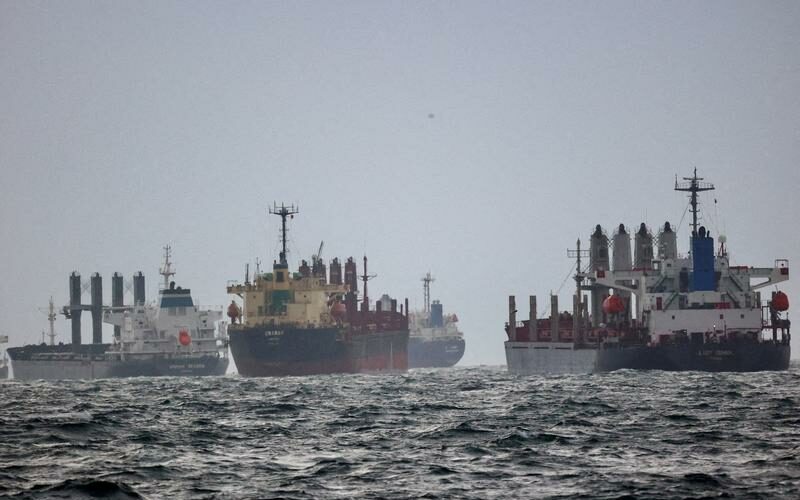Black Sea grain talks continue as Russia seeks 60-day renewal
MOSCOW (Reuters) -Talks continue to extend a deal to allow grain shipments from Ukraine’s Black Sea ports ahead of a deadline later this week, the United Nations and Turkey said on Tuesday, after Kyiv rejected a Russian push for a reduced 60-day renewal.
Since Russia and Ukraine signed the U.N.-backed Black Sea Grain Initiative in Turkey on July 22, millions of tonnes of grain and other food products have been exported from Ukrainian ports, helping lower global food prices from record highs.
Russia on Monday suggested allowing the deal to be renewed for 60 days, half the term of the previous renewal.
The RIA news agency on Tuesday cited Russia’s Deputy Foreign Minister Sergei Vershinin as saying Moscow had not yet received an official response from all parties to its proposal.
It was not immediately clear how the deal could be extended for half of the previous duration of 120 days.
Turkey, which facilitated the deal alongside the U.N., said in a defence ministry statement that Moscow had agreed to back a 60-day extension to the deal but that talks continued.
The United Nations would not be drawn on confirming whether the deal would continue for 60 days or 120 days. U.N. spokesman Stephane Dujarric told reporters: “Our position is that it is important that this continues.”
Ukraine said it will stick to the terms of the previously agreed deal based on a 120-day duration that can be renewed.
“We will follow the agreement strictly,” a senior Ukrainian government official told Reuters. The official declined to be identified.
“There is no option to sign the current deal for 60 days only – we know it for sure because we know that the current deal extends automatically for 120 days if there are no objections from any side,” Andrey Sizov, head of Sovecon agriculture consultancy, said.
“So, if Russia wants the deal to last for 60 days, all the sides would have to sign a new agreement, which seems unlikely as Ukraine has already said that it would not be ready to sign a 60-day deal.”
The Kremlin repeated previous Russian criticism of the deal that it does not address obstacles to its own food and fertiliser exports. Spokesman Dmitry Peskov said the deal could not “stand on one leg”.
Russia has said sanctions on its payments, logistics and insurance industries have created barriers, even though the West has not explicitly targeted agricultural exports.
International grain traders had widely anticipated an extension of the corridor deal. This had contributed to weak prices with U.S. wheat, for example, falling on Friday to the lowest level since July 2021.
Wheat and corn markets rebounded this week as Moscow pushed to extend the deal for just 60 days, feeding doubts about its commitment given accusations by Ukraine that Russia is deliberately slowing down the inspection process.
Source: Read Full Article

